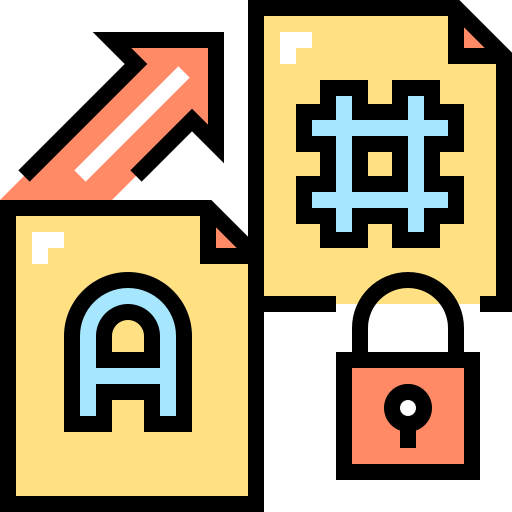MD5 Hash Converter
Verify MD5 Hash

MD5 Hash Generator
In the realm of cybersecurity, where data integrity and authentication are paramount, MD5 hash generation emerges as a fundamental tool. This article delves into the significance of MD5 (Message Digest Algorithm 5) hashes, their applications, and how an MD5 hash generator serves as a cornerstone in safeguarding digital information.
1. Understanding MD5 Hashing
Hashing Fundamentals
MD5 is a widely used cryptographic hash function that produces a fixed-size 128-bit hash value, commonly expressed as a 32-character hexadecimal number. Hashing is the process of converting input data (of any size) into a fixed-length string of characters, which is the hash. A critical aspect of MD5 is that even a minor change in the input data results in a vastly different hash.
Unique Identifiers
MD5 hashes serve as unique identifiers for data. Whether applied to passwords, files, or messages, the generated hash provides a distinctive fingerprint for the given input. This uniqueness is vital for verifying data integrity and detecting any alterations.
2. Applications of MD5 Hashing
Password Security
In the realm of cybersecurity, storing plain-text passwords is a significant risk. MD5 hashes provide a solution by allowing systems to store only the hash of a password. During authentication, the system compares the hash of the entered password with the stored hash, enhancing security and protecting user credentials.
File Integrity Verification
When transferring files or storing them on servers, ensuring that the content remains unchanged is crucial. MD5 hash generation allows users to create checksums for files. By comparing the hash before and after a file transfer, users can verify its integrity and detect any potential tampering.
Data Deduplication
In scenarios where storage efficiency is paramount, MD5 hashes play a role in data deduplication. By generating unique hashes for distinct pieces of data, systems can identify and eliminate duplicate copies, optimizing storage space.
3. The Role of MD5 Hash Generator
Efficiency in Hash Generation
Manually calculating MD5 hashes for large datasets or files can be impractical. An MD5 hash generator automates this process, swiftly producing the hash for any given input. This not only saves time but also reduces the risk of human error in the hashing process.
User-Friendly Interfaces
MD5 hash generators often come with intuitive user interfaces, making them accessible to individuals with varying levels of technical expertise. Users can input text strings, passwords, or upload files, and the generator handles the hashing process seamlessly.
Integration into Development Processes
For developers working on applications or systems that require MD5 hashes, generators provide an efficient way to incorporate hashing into their codebase. This integration ensures that data integrity and security are inherent to the software architecture.
4. Best Practices for MD5 Hash Generation
Salted Hashes for Passwords
To enhance password security, it is advisable to use salted hashes. This involves adding a unique random value (the salt) to each password before hashing. The salt is then stored alongside the hash, making it more challenging for attackers to use precomputed tables (rainbow tables) for password cracking.
Regular Hash Rotation
For sensitive data, consider implementing a strategy of regularly rotating MD5 hashes. This practice adds an extra layer of security by minimizing the window of opportunity for attackers attempting to crack the hash.
5. The Future of Hashing and Security
As technology evolves, cryptographic algorithms continue to advance. While MD5 has historically been a robust choice for hashing, it’s important to stay abreast of developments in the field. Some security experts advocate for the use of more secure hash functions like SHA-256 or SHA-3, especially for critical applications.
6. Conclusion
In the ever-expanding digital landscape, where data security is a top priority, MD5 hash generators stand as essential tools for safeguarding information. Whether applied to password storage, file integrity verification, or data deduplication, MD5 hashes play a pivotal role in ensuring the authenticity and reliability of digital assets.
As technology progresses, the synergy between robust cryptographic practices and user-friendly tools like MD5 hash generators becomes crucial. By incorporating these tools into cybersecurity best practices, individuals and organizations can fortify their defenses, protecting sensitive information from the ever-present threats in the digital realm.
